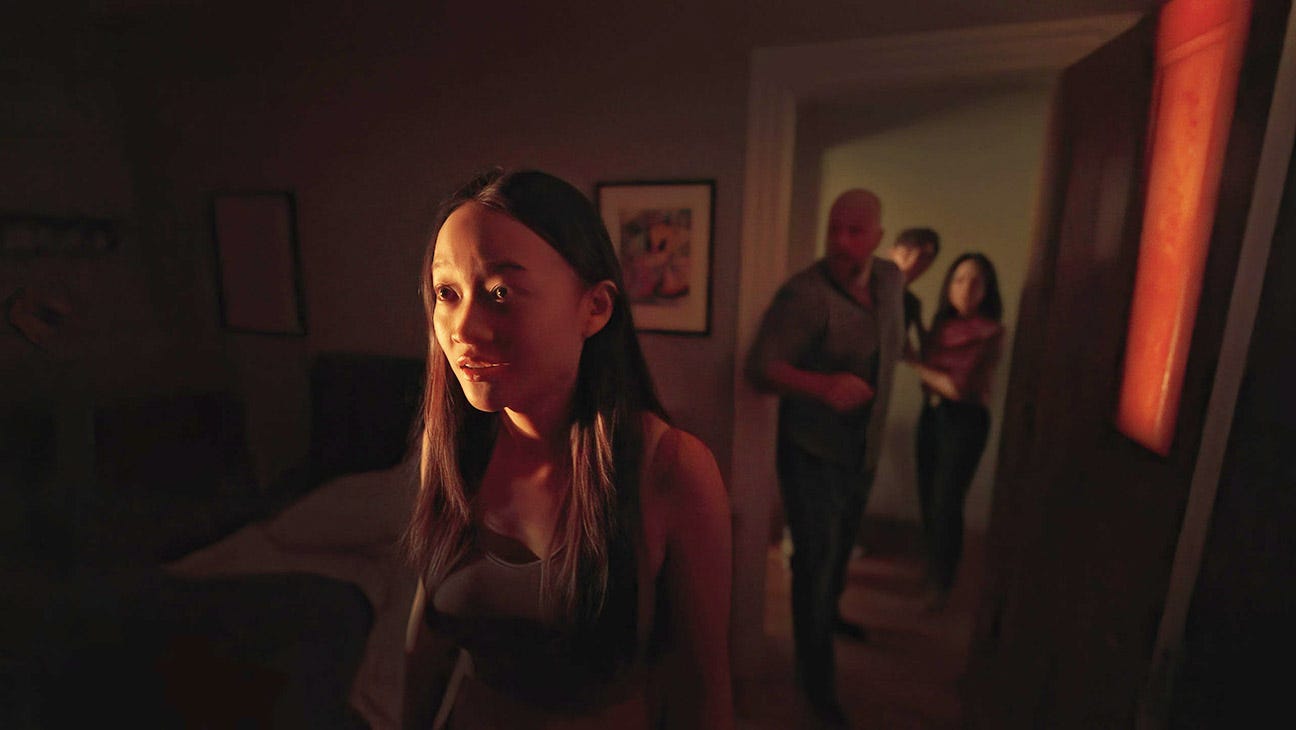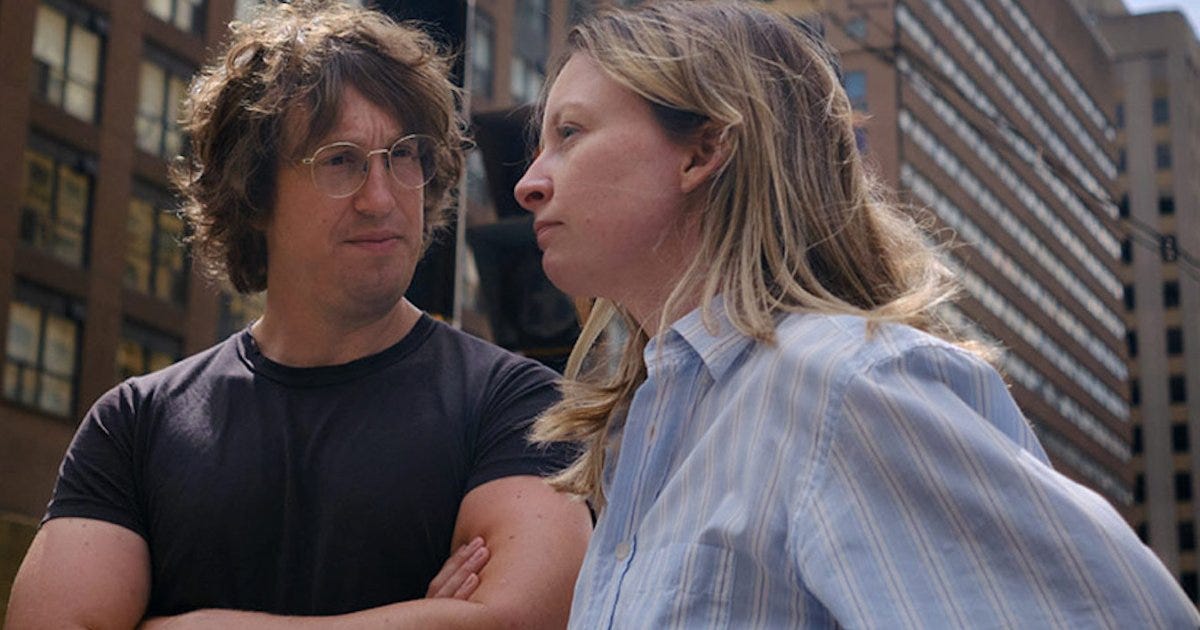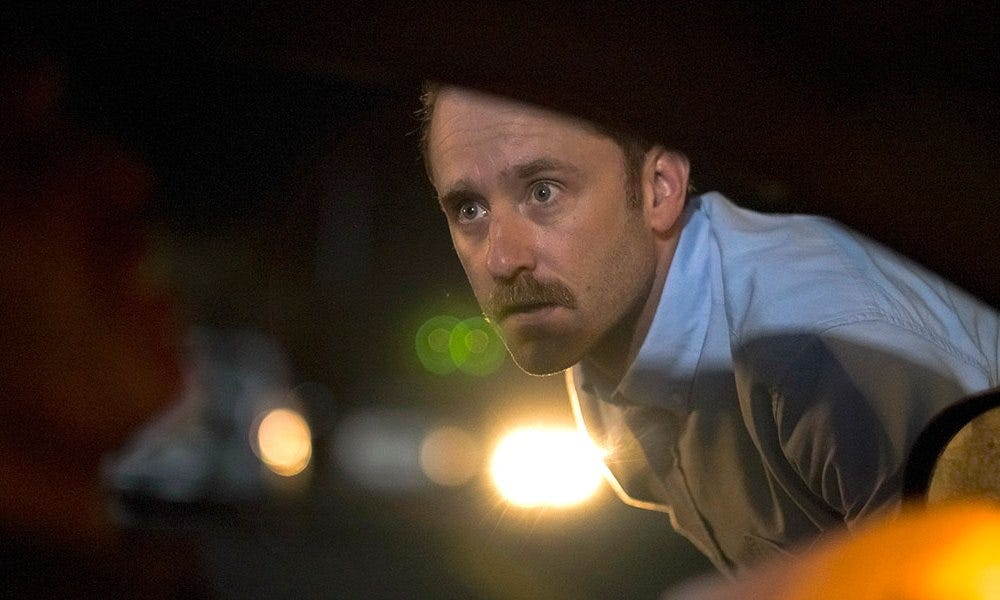My Vancouver International Film Festival diary
Five short reviews from VIFF 2024, including new films by Steven Soderbergh and Jia Zhangke
Last weekend, I organized a trip to the Vancouver International Film Festival with a few of my fellow movie-loving friends in Seattle. This was my first time at the festival and I liked nearly all of the films I saw, which included new work from directors I already love and ones who I’m less familiar with.
Of the five films I saw, there were two immediate standouts: Jia Zhangke’s Caught by the Tides and Kazik Radwanski’s Matt and Mara.
I’ll be heading back to the festival this weekend to see one of my most-anticipated films of the year: Marielle Heller’s Nightbitch. Look for that review in the next week or so. Until then, here are short reviews of every film I was able to check out in Vancouver.
Caught by the Tides
In Caught by the Tides, the director Jia Zhangke continues exploring the rapid, turbulent modernization of 21st-century China.
The film is an overwhelming collage of images that Jia has been collecting for over 20 years; it includes both documentary scenes and unused or repurposed footage from his fictional features.
Caught by the Tides has a very loose central narrative, a story of lost love concerning Qiaoqiao (Jia’s longtime muse Zhao Tao) and Bin (Li Zhubin). Beginning in the early 2000s and stretching to the present, the movie is dominated by images of Qiaoqiao quietly navigating a vastly shifting cultural landscape. Zhao gives one of the best performances of the year here, a strange thing to type considering she’s technically been giving it on and off for two decades.
Two-thirds into the film, Jia makes an abrupt jump from the mid-2000s to 2022, and seeing her and Li’s world-weary faces covered by N-95 masks amid the ongoing Covid-19 pandemic was a jolt. Their failed romance didn’t fully connect for me until here, when the abrupt passage of time- unbound dance floor raves transitioning to wordless group runs, weather-worn trains evolving into sleek high-speed railways, philosophical robots replacing communal musical performances- overwhelms the movie.
Presence
“A ghost story from the perspective of the ghost” is a fun horror movie sales pitch, but Steven Soderbergh’s Presence is more sad than scary.
It begins with the lonely specter wandering a large, empty suburban townhome. The first-person camera movements are deliberate and languorous; this ghost is bored. Then, a noise outside. The camera rushes to the window, then to the front door as a real estate agent (Julia Fox) hurriedly prepares the home for a viewing.
She shows a family - mom (Lucy Liu), dad (Chris Sullivan), son (Eddy Maday), and daughter (Callina Liang)- around, and they almost instantly want to buy it. They’re looking to move because of a recent tragedy.
Screenwriter David Koepp smartly structures the movie as a series of vignettes, allowing us glimpses at the tense dynamics and fraught emotions that frequently bubble to the surface. It also gives Soderbergh time to reposition his camera and change its movements based on who the entity is observing.
This helps Presence largely transcend the potential for formal gimmickry. The ghost is by and large harmless, even though it has no qualms about making itself known. Presence draws its real scares from the helplessness of its limited perspective: The ghost can only do so much when living people decide to hurt each other.
Matt and Mara
Kazik Radwanski’s Matt and Mara is a hilarious, poignant will-they-won’t-they romance complicated by its emotionally incompatible leads.
Mara (Deragh Campbell) is a young, married English professor in Toronto. Matt (Matt Johnson) is a single, seemingly carefree writer. The two have known each other for a long time; we get the sense that they’re engaged in a decades-spanning flirtation. It’s a well-worn premise that Radwanski and his two leads reinvigorate by structuring the story as a series of disruptions and emotionally fraught debates.
Shot with a single, chaotically roving camera, Radwanski captures the immediacy of their reunion and the complex web of emotions it unearths. Matt’s nervous comedic gamesmanship and Mara’s tense but sporadically impulsive physicality give a tumultuous energy to scenes that largely involve walking down the sidewalk, eating at restaurants, or attending academic functions.
Most of the dialogue was improvised, and the sense of spontaneity in Campbell and Johnson’s performances feels incredibly natural. They have fantastic chemistry, and their contrasting acting styles enhance the movie’s main thesis: Emotional affairs are a hell of a drug.
Black Tea
In his first film in a decade, director Abderrahmane Sissako creates a charming romance about Aya (Nina Melo), an Ivory Coast woman who abruptly moves to Guangzhou, China after fleeing her own wedding. She seemingly has no trouble finding a job at a tea shop and making many new friends. It’s the quiet, lonely shop owner Cai (Chang Han) who captures her attention, though.
Sissako dances around their blossoming romance with a warmth that sometimes feels genuine, other times flimsy. He renders the strip of shops where Aya spends her days with a liveliness and beauty that propels the movie along. Black Tea’s mise en scene directly references the overwhelming sensuousness of Wong Kar-wai films- elliptical montages, longing glances, and colorful yet repressive cityscapes. What’s missing is a sense of interiority, though; Sissako looks at Aya and Cai from various angles but largely sees the same thing.
Sharp Corner
In David Cronenberg’s 1996 film Crash, a car accident draws a man into an underground sub-culture of crash victims who get turned on by the collision of metal, flesh, and bodily fluids. He, and Cronenberg’s camera, descend into this world with all-consuming, unapologetic intensity.
That sense of psychosexual obsession and chrome-and-crimson aesthetic danger is unforgettable and uncompromising. It’s also what’s missing from Sharp Corner, Jason Buxton’s comparatively bland film about another man’s automotive fixation.
Ben Foster stars as Josh, a devoted husband and father who comes undone after a series of car crashes outside the family’s new home. The rural house sits at a very sharp curve in the road (it is not a corner, as one of my friends pointed out afterward) and vehicles just can’t seem to navigate it.
After two people die in separate crashes in his front yard, Josh becomes preoccupied with delusions of heroism. Next time, he’ll be ready to jump into action.
As he spends more and more time learning first aid and staring out the window at the street waiting for a crash, the movie feels increasingly inert. Foster gives an excellent performance, though; his darkly comic gestures are enhanced by hints of mania. He sits in stark contrast to the rest of this blandly conceived movie and its flat, uninspired characters.
Thankfully, Buxton nails the landing, with an abruptly satisfying ending that gives the movie a sinister yet playful tone the rest of it was missing.








